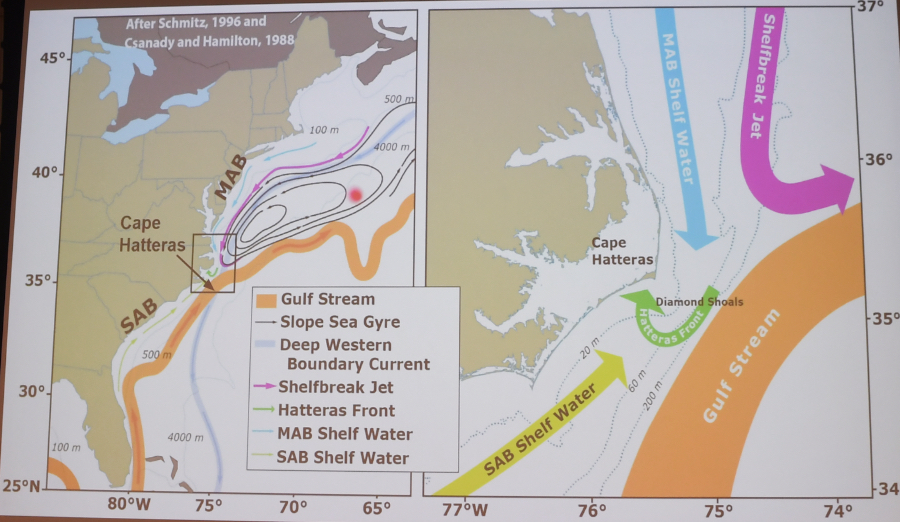Once a month, the Coastal Studies Institute (CSI) on Roanoke island holds a Science on the Sound. It’s always pretty interesting stuff, but the last one on Thursday evening was particularly fascinating.
The speaker was Mike Muglia…well, Dr. Mike Muglia since he has a PhD in physics. Mike, in between surfing-yes, there is often a surfboard riding on his car—has been studying how to capture ocean energy for almost 10 years now at CSI.
Originally most of his work concentrated on the Gulf Stream—and for good reason. As he pointed out in his talk on Thursday, the Gulf Stream passes closest to the North American continent at the Point on Hatteras Island and the flow of water moving north at around five knots is “… about 30 times the flow of all the rivers on Earth…”
That’s a lot of potential energy.
The problem is, as he pointed out, that the technology simple does not exist right now to either gather the energy or transmit it. There are some good concepts that have been developed and some experimental projects, but practical application is some way off.
What is not some way off, though, are micro grid applications. Small standalone power sources, meaning they are not tied icon the power grid, that are usually designed for a single purpose.
Nothing is in place yet, but the technology and tools are there to, as an example, power some portion of Jennette’s Pier with wave energy.
Mike spent a considerable part of his presentation talking about one recent demonstration of how ocean energy can be harnessed. The Waves to Water competition held at Jennette’s Pier last April is an excellent example of a potential benefit to using ocean energy.
In this case, four competitors placed their concepts in the water, with the object of generating drinkable water from nothing but wave energy. Two of the designs used the wave energy to generate power for a pump. The other two, simply used the force of the waves to push water through a reverse osmosis membrane.
All four were successful, but the winning design from Canadian based Oneka Technologies was able to produce about 000 liters of potable water per day.
There are surprising things to do on the Outer Banks and never a reason to be bored. Stop by and experience the excitement for yourself while staying in a Brindley Beach Vacations home.

